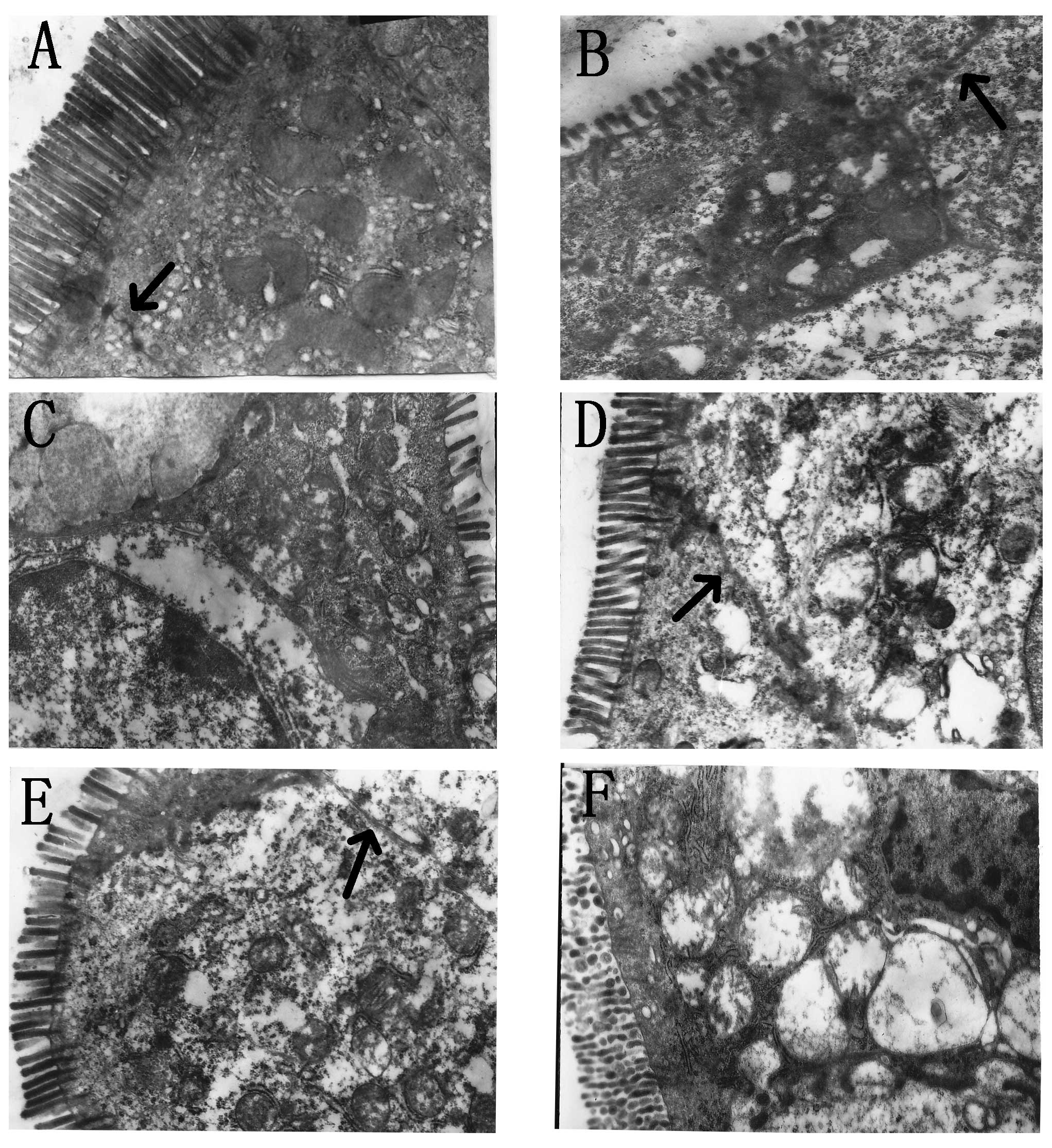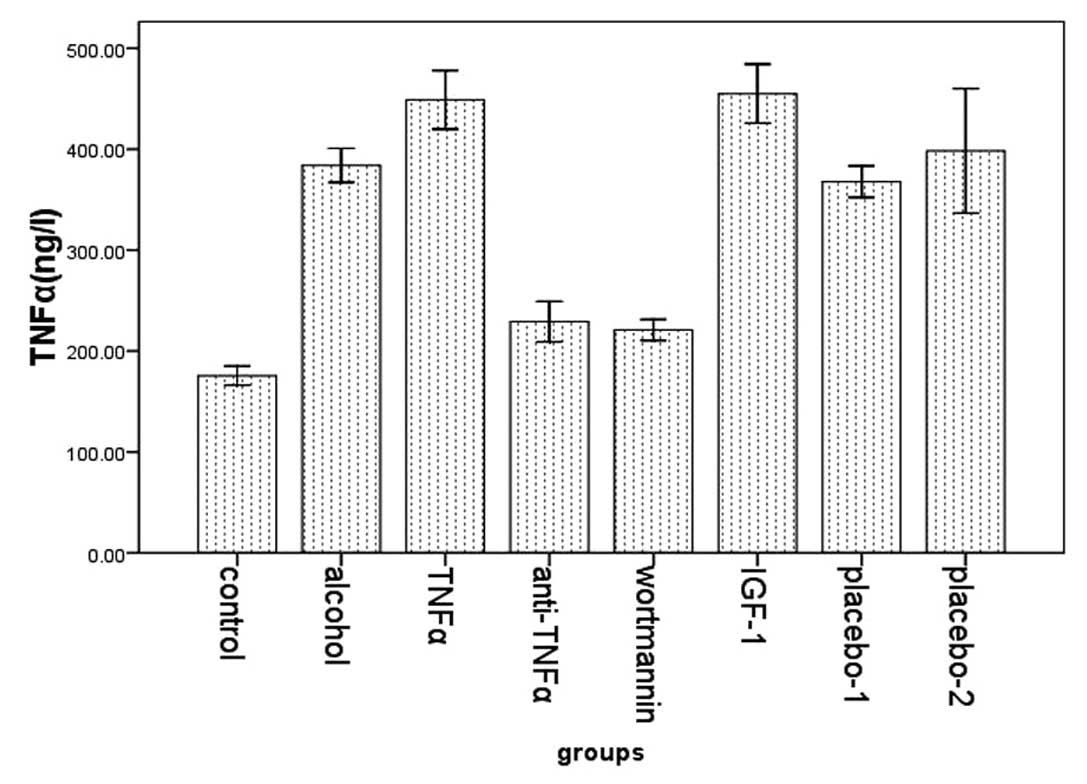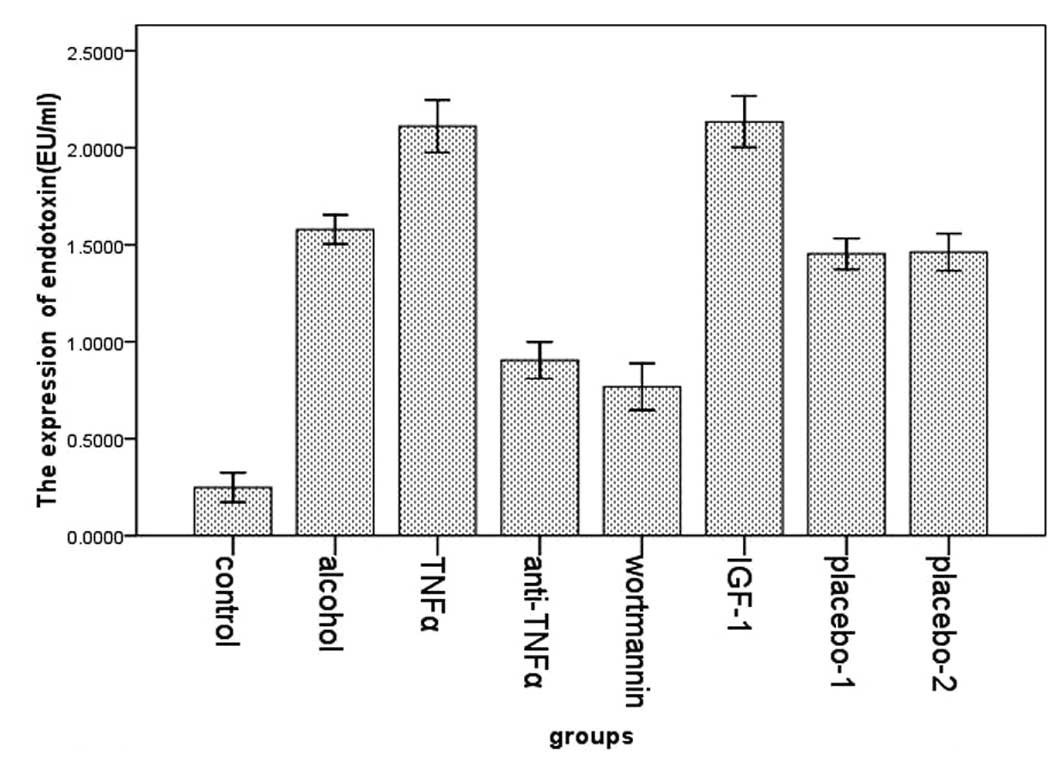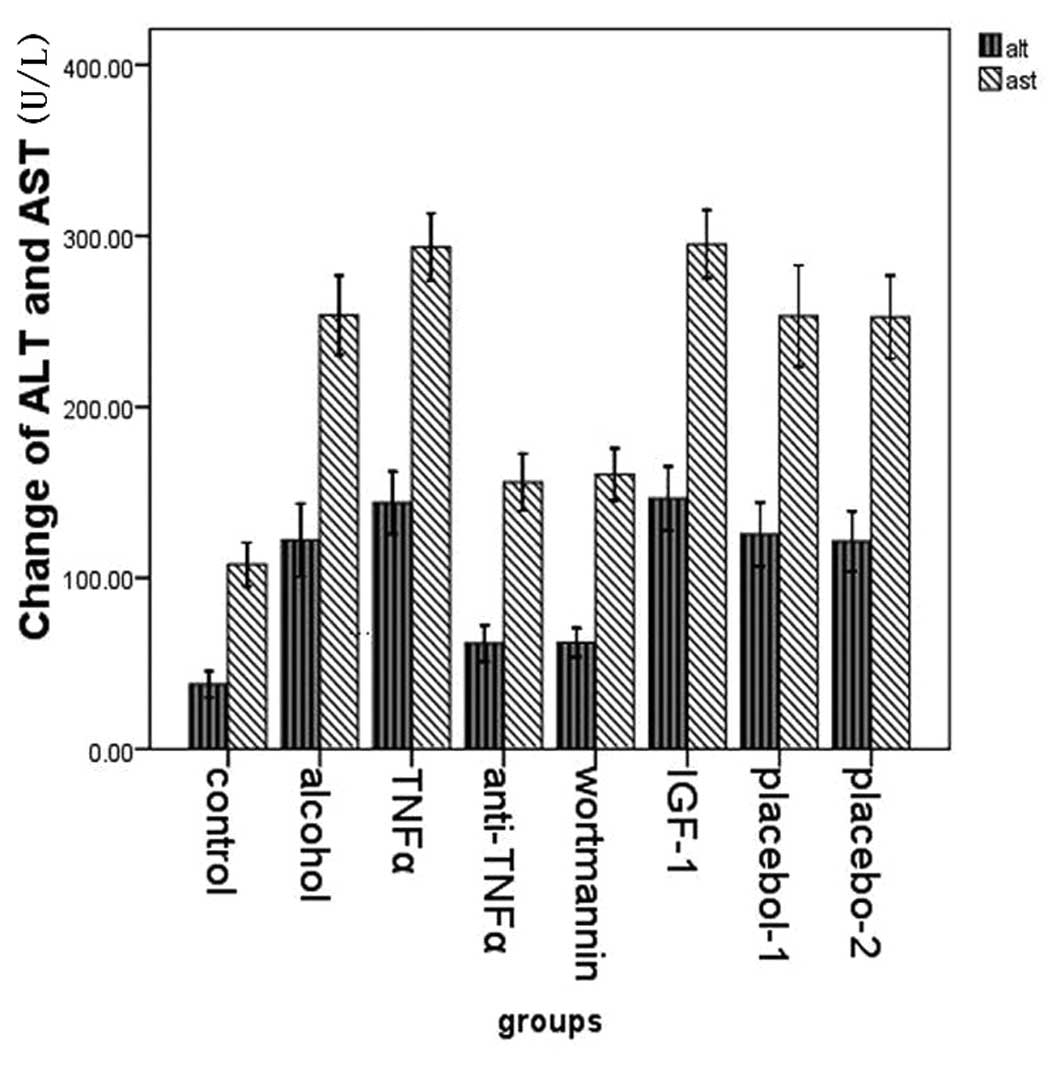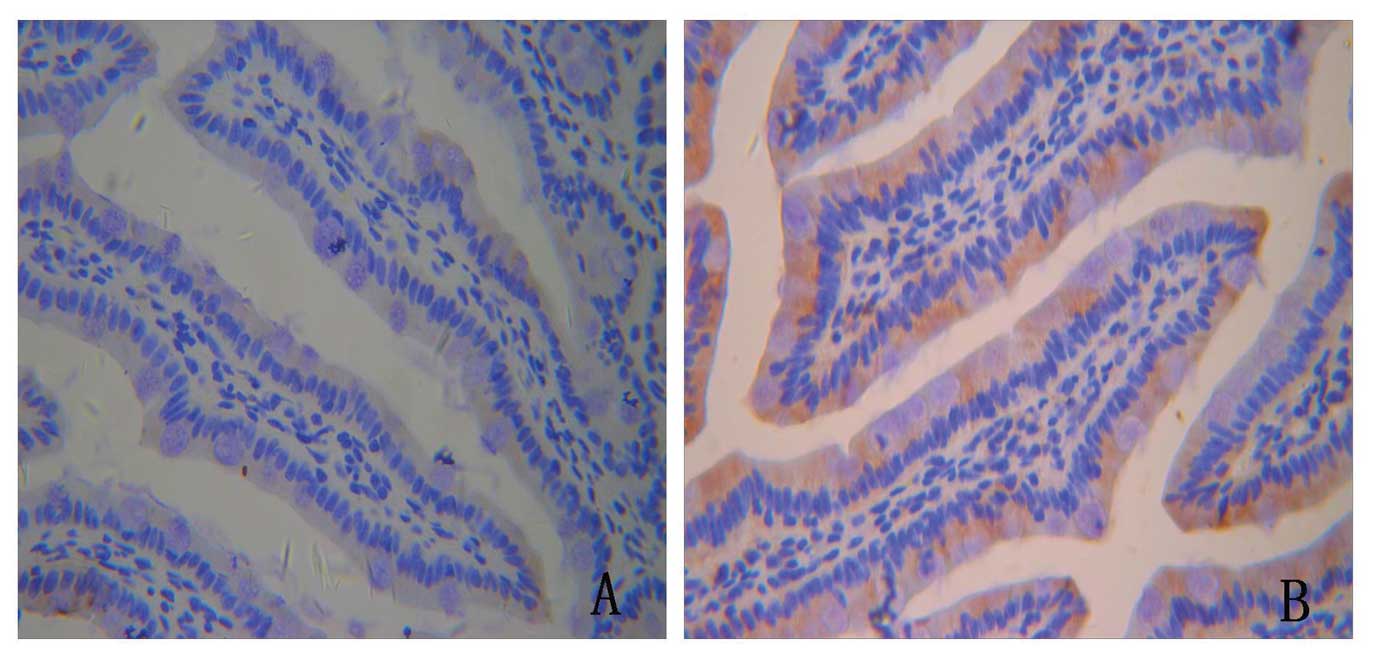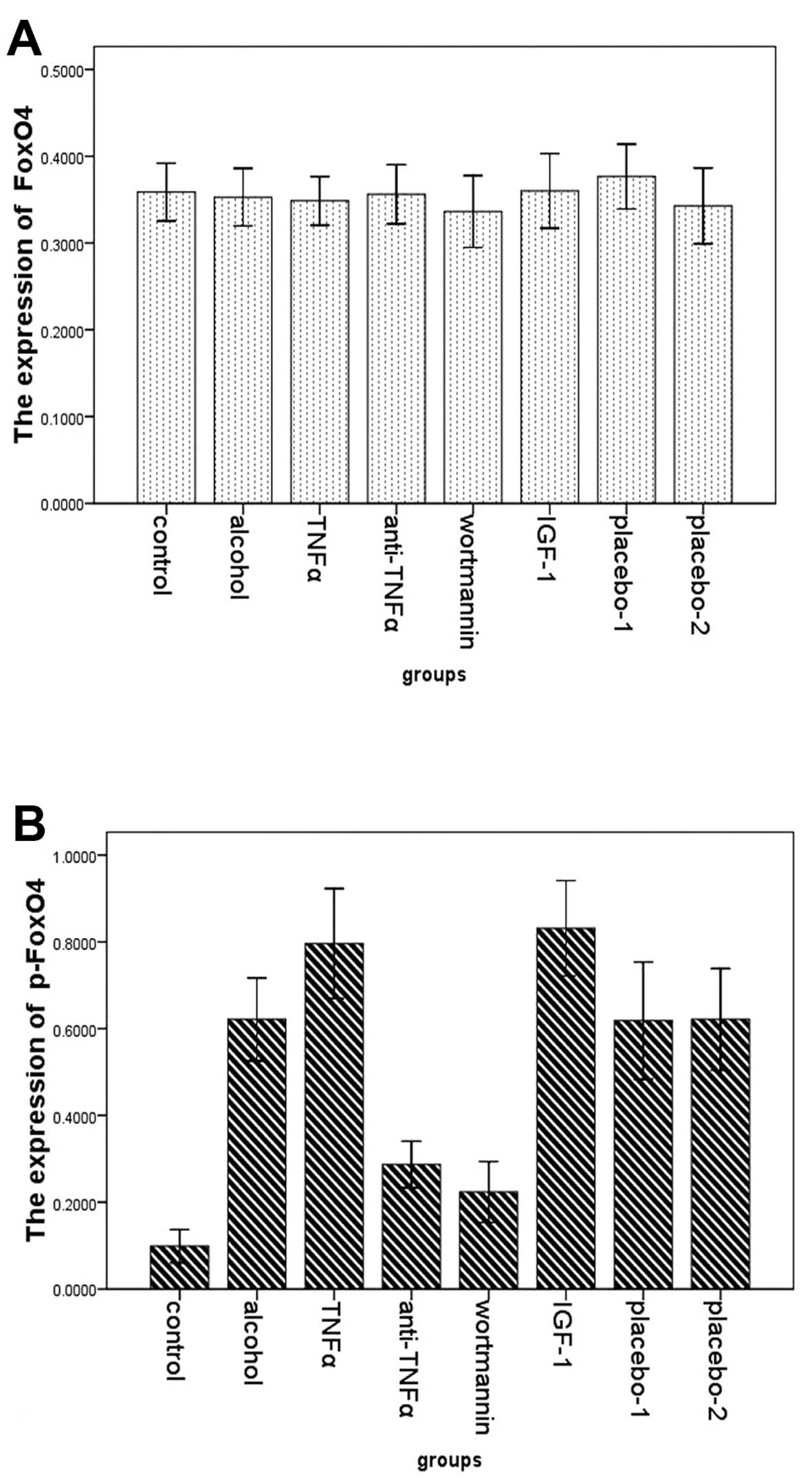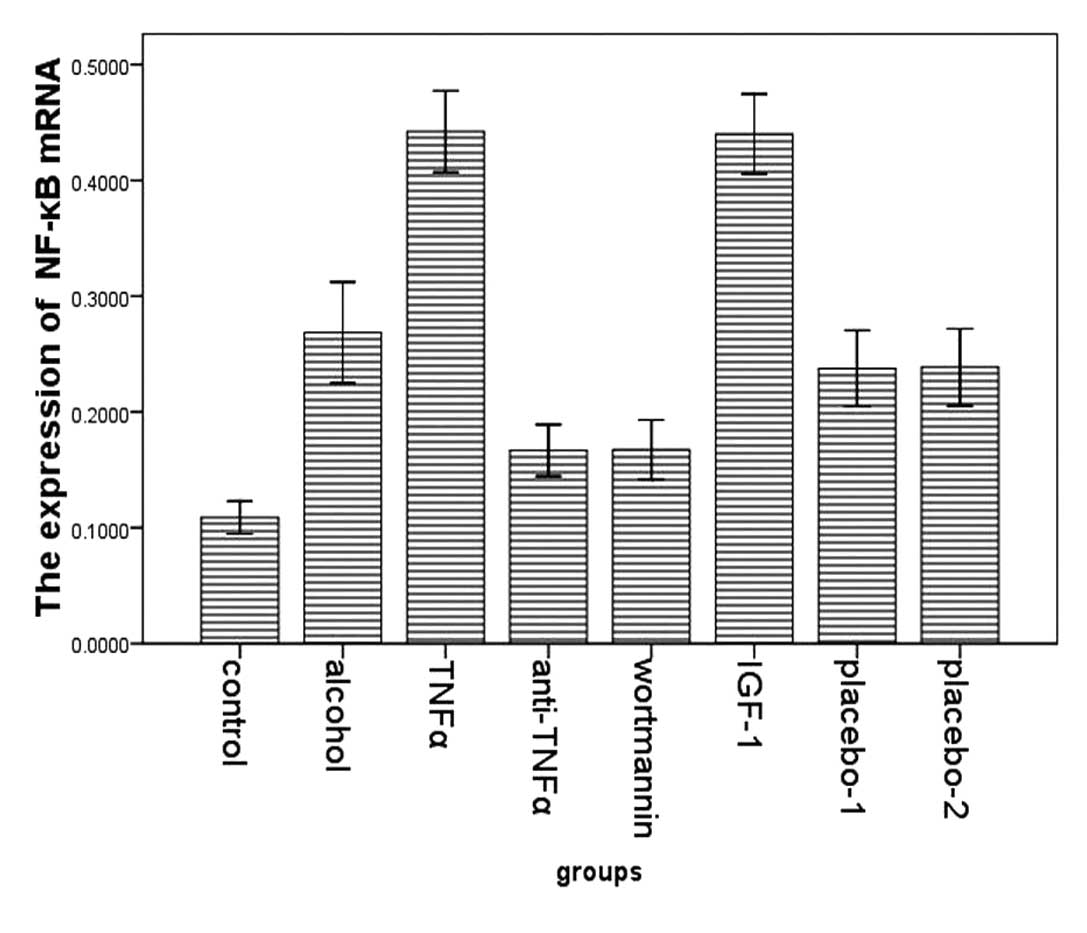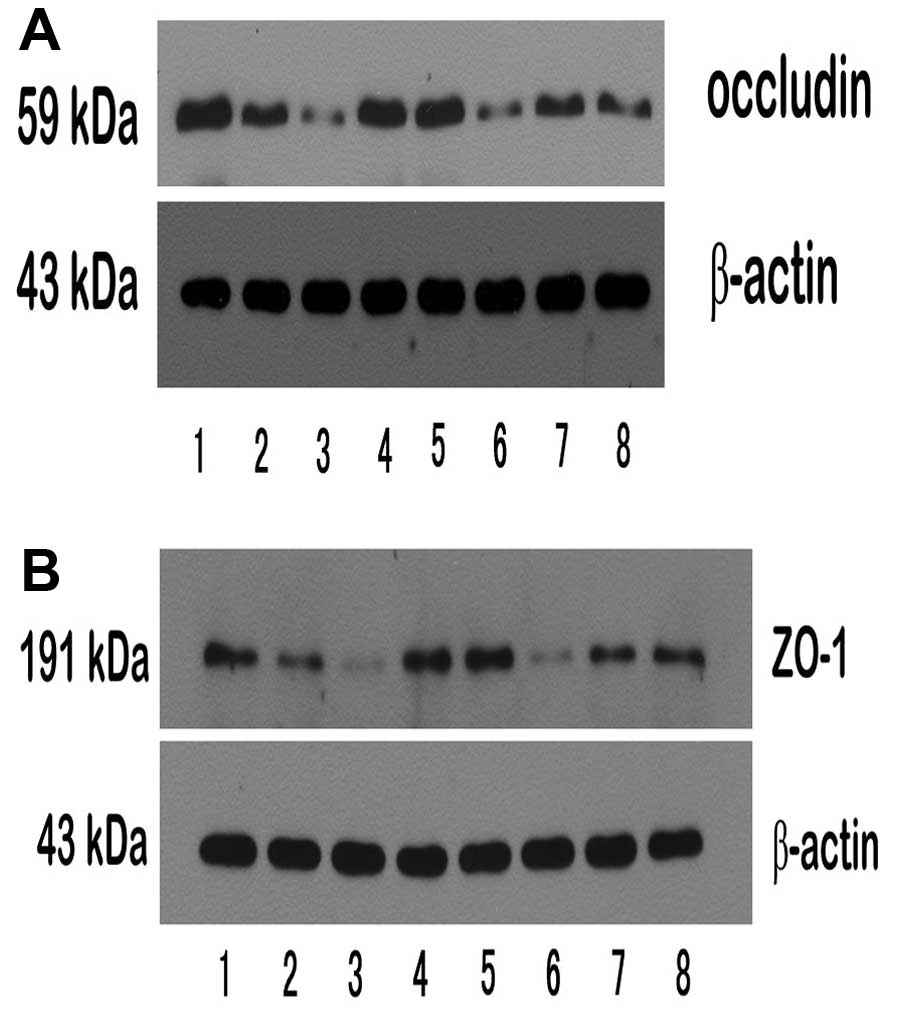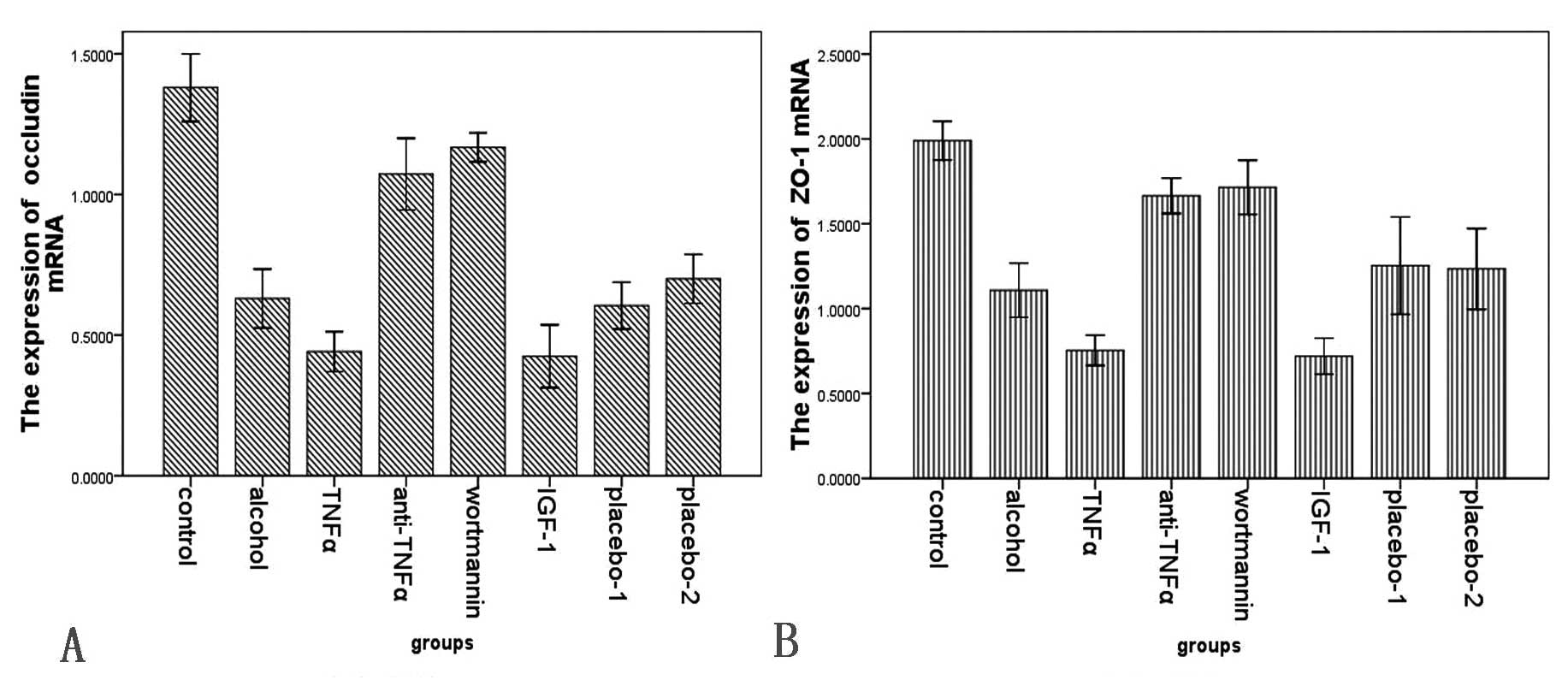|
1
|
Stewart S, Jones D and Day CP: Alcoholic
liver disease: new insights into mechanisms and preventative
strategies. Trends Mol Med. 7:408–413. 2001. View Article : Google Scholar : PubMed/NCBI
|
|
2
|
Rouault TA: Hepatic iron overload in
alcoholic liver disease: why does it occur and what is its role in
pathogenesis? Alcohol. 30:103–106. 2003. View Article : Google Scholar : PubMed/NCBI
|
|
3
|
Keshavarzian A, Holmes EW, Patel M, et al:
Leaky gut in alcoholic cirrhosis: a possible mechanism for
alcohol-induced liver damage. Am J Gastroenterol. 94:200–207. 1999.
View Article : Google Scholar : PubMed/NCBI
|
|
4
|
Ma TY, Iwamoto GK, Hoa NT, et al:
TNF-alpha-induced increase in intestinal epithelial tight junction
permeability requires NF-kappa B activation. Am J Physiol
Gastrointest Liver Physiol. 286:G367–G376. 2004. View Article : Google Scholar : PubMed/NCBI
|
|
5
|
Ma TY and Anderson JM: Tight junctions and
intestinal barrier. Physiology of the Gastrointestinal Tract. LR
Johnson: Elsevier Academic Press; New York, NY: pp. 1559–1594.
2006
|
|
6
|
Marchetti V, Menghini R, Rizza S, et al:
Benfotiamine counteracts glucose toxicity effects on endothelial
progenitor cell differentiation via Akt/FoxO signaling. Diabetes.
55:2231–2237. 2006. View Article : Google Scholar : PubMed/NCBI
|
|
7
|
Essaghir A, Dif N, Marbehant CY, et al:
The transcription of FOXO genes is stimulated by FOXO3 and
repressed by growth factors. J Biol Chem. 284:10334–10342. 2009.
View Article : Google Scholar : PubMed/NCBI
|
|
8
|
Liu ZP, Wang Z, Yanagisawa H and Olson EN:
Phenotypic modulation of smooth muscle cells through interaction of
FoxO4 and myocardin. Dev Cell. 9:261–270. 2005. View Article : Google Scholar : PubMed/NCBI
|
|
9
|
Burgering BM: A brief introduction to
FOXOlogy. Oncogene. 27:2258–2262. 2008. View Article : Google Scholar : PubMed/NCBI
|
|
10
|
Lin L, Hron JD and Peng SL: Regulation of
NF-kappaB, Th activation and autoinflammation by the forkhead
transcription factor Foxo3a. Immunity. 21:203–213. 2004. View Article : Google Scholar : PubMed/NCBI
|
|
11
|
Dengler HS, Baracho GV, Omori SA, et al:
Distinct functions for the transcription factor Foxo1 at various
stages of B cell differentiation. Nat Immunol. 9:1388–1398. 2008.
View Article : Google Scholar : PubMed/NCBI
|
|
12
|
Paik JH, Kollipara R, Chu G, et al: FoxOs
are lineage-restricted redundant tumor suppressors and regulate
endothelial cell homeostasis. Cell. 128:309–323. 2007. View Article : Google Scholar : PubMed/NCBI
|
|
13
|
Tothova Z, Kollipara R, Huntly BJ, et al:
FoxOs are critical mediators of hematopoietic stem cell resistance
to physiologic oxidative stress. Cell. 128:325–339. 2007.
View Article : Google Scholar : PubMed/NCBI
|
|
14
|
Birkenkamp KU and Coffer PJ: Regulation of
cell survival and proliferation by the FOXO (Forkhead box, class O)
subfamily of Forkhead transcription factors. Biochem Soc Trans.
31:292–297. 2003. View Article : Google Scholar : PubMed/NCBI
|
|
15
|
Lüpertz R, Chovolou Y, Unfried K, et al:
The forkhead transcription factor FOXO4 sensitizes cancer cells to
doxorubicin-mediated cytotoxicity. Carcinogenesis. 29:2045–2052.
2008.PubMed/NCBI
|
|
16
|
Matsuzaki H, Ichino A, Hayashi T, et al:
Regulation of intracellular localization and transcriptional
activity of FOXO4 by protein kinase B through phosphorylation at
the motif sites conserved among the FOXO family. J Biochem.
138:485–491. 2005. View Article : Google Scholar
|
|
17
|
Anderson RC, Cookson AL, McNabb WC, et al:
Lactobacillus plantarum MB452 enhances the function of the
intestinal barrier by increasing the expression levels of genes
involved in tight junction formation. BMC Microbiol. 10:3162010.
View Article : Google Scholar
|
|
18
|
Donato KA, Gareau MG, Wang YJ and Sherman
PM: Lactobacillus rhamnosus GG attenuates interferon-(gamma)
and tumour necrosis factor-alpha-induced barrier dysfunction and
pro-inflammatory signalling. Microbiology. 156:3288–3297. 2010.
View Article : Google Scholar : PubMed/NCBI
|
|
19
|
Ewaschuk JB, Diaz H, Meddings L, et al:
Secreted bioactive factors from Bifidobacterium infantis
enhance epithelial cell barrier function. Am J Physiol Gastrointest
Liver Physiol. 295:G1025–G1034. 2008.PubMed/NCBI
|
|
20
|
Karczewski J, Troost FJ, Konings I, et al:
Regulation of human epithelial tight junction proteins by
Lactobacillus plantarum in vivo and protective effects on
the epithelial barrier. Am J Physiol Gastrointest Liver Physiol.
298:G851–G859. 2010. View Article : Google Scholar : PubMed/NCBI
|
|
21
|
Mennigen R, Nolte K, Rijcken E, et al:
Probiotic mixture VSL#3 protects the epithelial barrier by
maintaining tight junction protein expression and preventing
apoptosis in a murine model of colitis. Am J Physiol Gastrointest
Liver Physiol. 296:G1140–G1149. 2009.
|
|
22
|
Resta-Lenert S and Barrett KE: Live
probiotics protect intestinal epithelial cells from the effects of
infection with enteroinvasive Escherichia coli (EIEC). Gut.
52:988–997. 2003. View Article : Google Scholar : PubMed/NCBI
|
|
23
|
Zyrek AA, Cichon C, Helms S, et al:
Molecular mechanisms underlying the probiotic effects of
Escherichia coli Nissle 1917 involve ZO-2 and PKCzeta
redistribution resulting in tight junction and epithelial barrier
repair. Cell Microbiol. 9:804–816. 2007.PubMed/NCBI
|
|
24
|
Ye D, Ma I and Ma TY: Molecular mechanism
of tumor necrosis factor-alpha modulation of intestinal epithelial
tight junction barrier. Am J Physiol Gastrointest Liver Physiol.
290:G496–G504. 2006. View Article : Google Scholar : PubMed/NCBI
|
|
25
|
Atreya I, Atreya R and Neurath MF:
NF-kappaB in inflammatory bowel disease. J Intern Med. 263:591–596.
2008. View Article : Google Scholar : PubMed/NCBI
|
|
26
|
Zhou W, Cao Q, Peng Y, Zhang QJ, et al:
FoxO4 inhibits NF-kappaB and protects mice against colonic injury
and inflammation. Gastroenterology. 137:1403–1414. 2009. View Article : Google Scholar : PubMed/NCBI
|
|
27
|
Andresen L, Jørgensen VL, Perner A, et al:
Activation of nuclear factor kappaB in colonic mucosa from patients
with collagenous and ulcerative colitis. Gut. 54:503–509. 2005.
View Article : Google Scholar : PubMed/NCBI
|
|
28
|
Montufar-Solis D, Garza T and Klein JR:
T-cell activation in the intestinal mucosa. Immunol Rev.
215:189–201. 2007. View Article : Google Scholar : PubMed/NCBI
|
|
29
|
Gadjeva M, Wang Y and Horwitz BH:
NF-kappaB p50 and p65 subunits control intestinal homeostasis. Eur
J Immunol. 37:2509–2517. 2007. View Article : Google Scholar : PubMed/NCBI
|
|
30
|
Nenci A, Becker C, Wullaert A, et al:
Epithelial NEMO links innate immunity to chronic intestinal
inflammation. Nature. 446:557–561. 2007. View Article : Google Scholar : PubMed/NCBI
|















